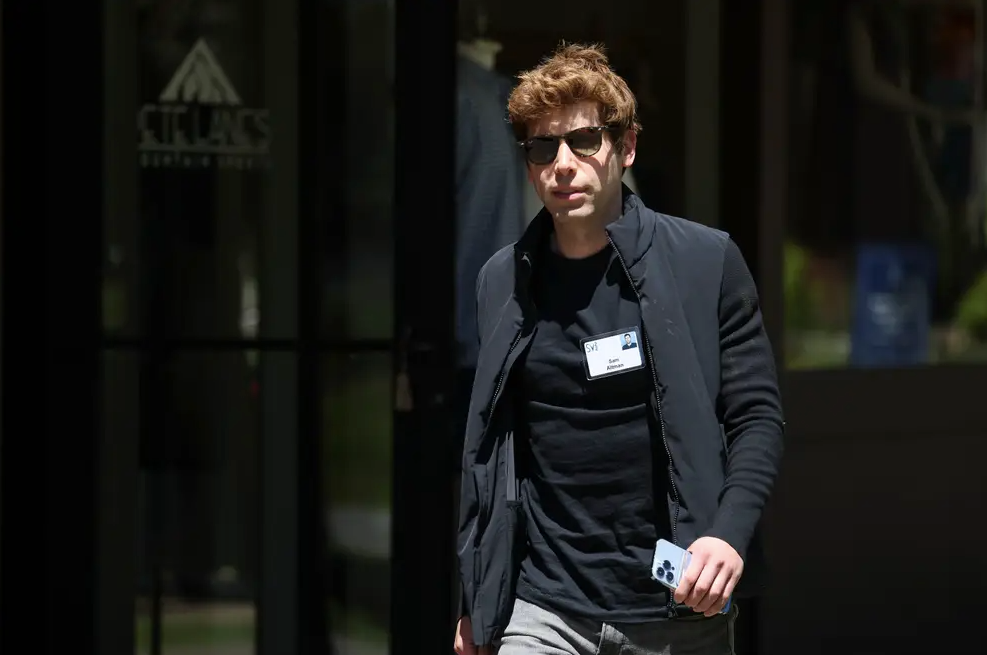|
Getting your Trinity Audio player ready...
|
In a surprising U-turn, the CEO of OpenAI, Sam Altman, announced that the company has no plans to leave Europe, retracting a threat he made earlier this week. Altman had previously indicated that OpenAI might consider exiting the bloc if complying with forthcoming AI laws became too burdensome. However, his remarks triggered widespread coverage and scrutiny, prompting a change in stance.
Taking to Twitter to clarify the company’s position, Altman stated, “We are excited to continue to operate here and of course have no plans to leave.” The European Union (EU) is in the process of formulating legislation that could become the first comprehensive regulatory framework for AI. Altman had expressed concerns that the proposed laws were “over-regulating” the industry.
One key point of contention in the legislation is the requirement for generative AI companies to disclose the copyrighted material used to train their systems. This provision aims to address concerns raised by creative industries about AI companies leveraging the work of artists, musicians, and actors to simulate their output. However, Altman argued that complying with certain safety and transparency requirements outlined in the AI Act would pose technical challenges for OpenAI.
During an event at University College London, Altman shared his optimism about AI’s potential to create jobs and reduce inequality. He also held discussions with UK Prime Minister Rishi Sunak, as well as representatives from AI companies DeepMind and Anthropic, to address the risks associated with AI, including disinformation and national security threats. They explored the necessary voluntary actions and regulations to manage these challenges effectively.
The issue of regulating AI has garnered global attention, with leaders from G7 countries acknowledging the importance of creating “trustworthy” AI through international cooperation. Before the EU legislation takes effect, the European Commission aims to establish an AI pact with Alphabet, Google’s parent company. EU industry chief Thierry Breton stressed the need for collaboration and proposed developing a voluntary AI pact with all AI developers ahead of legal requirements.
As discussions on AI regulation continue, industry veteran Tim O’Reilly emphasized the significance of transparency and regulatory institutions to ensure accountability. O’Reilly suggested that companies involved in advanced AI should collaborate to define a comprehensive set of metrics to be regularly reported to regulators and the public, with flexibility for updating these metrics as best practices evolve.
The debate surrounding AI regulations is far from over, but OpenAI’s commitment to remaining in Europe indicates its willingness to engage in the ongoing dialogue and work towards finding a balance between innovation, compliance, and responsible AI development.
The stance taken by OpenAI to remain in Europe despite concerns over AI regulations reflects the company’s commitment to being part of the ongoing dialogue surrounding responsible AI development. As the EU works towards formulating comprehensive legislation, the engagement of industry leaders like OpenAI is crucial to strike the right balance between fostering innovation and ensuring ethical standards.
While Sam Altman had initially expressed worries about the regulatory complexity and technical challenges posed by certain requirements, the shift in OpenAI’s position suggests a willingness to find practical solutions that align with the goals of the legislation. The company’s decision to stay and actively participate in shaping the future of AI regulation in Europe demonstrates a commitment to transparency, accountability, and responsible practices.
The EU’s ambition to develop an AI pact with Alphabet, the parent company of Google, underscores the importance of international collaboration in tackling the challenges associated with AI. By fostering cooperation among AI developers, regulators, and the public, a voluntary AI pact can establish a framework for responsible AI deployment ahead of the legal deadline.
Tim O’Reilly, a respected figure in Silicon Valley, emphasizes the need for mandating transparency and building regulatory institutions to enforce accountability. This approach would enable companies working on advanced AI technologies to report metrics consistently and regularly, ensuring transparency and addressing concerns surrounding AI systems.
As the debate on AI regulations continues, it remains crucial for policymakers, industry leaders, and experts to collaborate and strike a balance that promotes innovation while safeguarding societal interests. The evolving AI landscape necessitates agile and adaptive frameworks that can keep pace with technological advancements. OpenAI’s commitment to staying in Europe serves as a positive signal for the industry, reflecting a dedication to responsible AI development and a willingness to work within regulatory boundaries.
